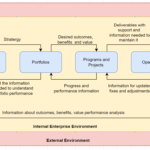In today’s fast-paced business environment, effective project management is crucial for organizations to achieve their goals successfully. However, just like any undertaking, project management comes with its own set of challenges. From resource allocation and communication breakdowns to scope creep and tight deadlines, project managers face various obstacles that can derail even the most well-planned projects.
Project Management Challenge 1: Effective Communication
Effective communication is crucial for the success of any project. Poor communication can lead to various issues such as misunderstandings, conflicts, missed deadlines, and failed projects. As a project manager, it is essential to focus on improving communication within your team to ensure smooth project execution.
One way to address this challenge is by establishing a clear communication plan. Define communication methods, such as emails, calls, or in-person meetings, and ensure all team members are aware of these protocols. By setting expectations upfront, you can minimize misunderstandings and ensure effective information sharing.
Additionally, project management software can be a valuable tool for enhancing communication. Features such as shared calendars, message boards, and automated reporting can facilitate collaboration and keep team members informed about project updates. Utilizing these tools can help create a centralized source of information, making it easier for team members to stay on the same page.
Regular feedback and open communication are also key components for the reduction of poor communication. Providing feedback to team members can help them improve their skills and performance while encouraging collaboration and idea-sharing can foster a positive team dynamic. By fostering a culture of open communication and transparency, you can mitigate the risks associated with miscommunication and enhance the overall success of your projects.
In conclusion, effective communication is a critical aspect of project management. By addressing communication challenges proactively and implementing strategies to improve communication within your team, you can enhance project outcomes, minimize conflicts, and increase the likelihood of project success.
Project Management Challenge 2: Unrealistic Deadlines
Unrealistic project deadlines are a common challenge that project managers face in their day-to-day work. These deadlines are often too tight, leading to stress, burnout, and compromised project quality. When deadlines are too aggressive, the project team may struggle to meet expectations, resulting in a negative impact on the overall project outcomes.
The root causes of unrealistic deadlines can vary but often stem from overconfidence in what can be achieved within a given timeframe. Project managers may feel pressure to deliver results quickly, leading to overly ambitious deadlines that are not realistically achievable.
To address the challenge of unrealistic deadlines, project managers can take proactive steps to set more reasonable and achievable timelines. By using project management software, teams can plan and schedule tasks more effectively, ensuring appropriate resource allocation and realistic deadlines.
By incorporating feedback from team members and stakeholders, project managers can gather input on how long tasks will take to complete and adjust timelines accordingly. Applying time estimation techniques such as the Program Evaluation Review Technique (PERT) or the critical path method can help project managers create more accurate project schedules.
In addition, clearly defining roles and expectations for team members can help ensure that everyone is on the same page regarding project deadlines and deliverables. By setting realistic deadlines and effectively managing expectations, project managers can mitigate the challenges associated with unrealistic timelines and improve overall project outcomes.
Project Management Challenge 3: Lack of Clarity in Project Goals
Lack of clarity in project goals can pose a significant challenge in project management. Poorly defined project goals or unclear objectives can confuse team members, causing delays, budget overruns, and project failure. For instance, a vague goal like “improve customer satisfaction” does not specify which aspects to address, such as reducing wait times or enhancing product quality. Clear, detailed objectives are crucial to guiding the project effectively and avoiding these issues.
To address this challenge, it is essential to start with the end in mind by defining the desired outcome for the project and then working backwards to determine the necessary steps to achieve it. Involving everyone in defining goals and objectives ensures that team members understand what needs to be accomplished and why it is important
Furthermore, setting clear, measurable, and attainable goals is crucial for project success. Goals should be specific, such as reducing customer wait times by 30% in the next quarter or achieving a customer satisfaction rating of 90% in the next six months. Without clear and defined goals and objectives, team members may be unsure about their role in the project and what needs to be done, leading to project delays and mistakes.
In conclusion, addressing the lack of clarity in project goals is essential for effective project management. By defining clear and measurable goals, involving all team members in the goal-setting process, and ensuring that goals are achievable and aligned with the project’s overall objectives, project managers can mitigate the risks associated with unclear project goals and increase the likelihood of project success.
Project Management Challenge 4: Insufficient Project Management Skills
One of the key challenges faced by project managers is the lack of sufficient project management skills. Many project managers are often thrust into their roles without proper training or the necessary skills to manage a project effectively. This can lead to a lack of confidence, difficulties in expanding their skills, and challenges in managing small-scale projects.
To overcome this challenge, project managers need to prioritize personal learning and invest in project management training. By continuously practicing and expanding their skills, project managers can become more adept at managing various types and scales of digital projects. It is important for project managers to stay flexible, adapt quickly to different scenarios, and learn from their mistakes.
Additionally, establishing a culture of open communication, honesty, and integrity within the project team can help project managers overcome challenges related to insufficient project management skills. By fostering a collaborative environment where team members feel accountable for their tasks, project managers can ensure that project goals are met effectively and efficiently. Properly assigning tasks to team members with suitable roles and skill sets is also crucial in addressing this challenge.
In conclusion, by focusing on personal growth, continuous learning, and effective communication, project managers can overcome the challenge of insufficient project management skills and successfully lead their teams to project success.
Project Management Challenge 5: Lack of Accountability
In the world of project management, accountability plays a crucial role in the success of a project. When team members don’t feel accountable for their tasks and decisions, they lack commitment, perform poorly, and ultimately cause project failure.
Accountability is not about assigning blame when things go wrong; it is about empowering team members to take ownership of their responsibilities and actions. When team members are accountable, they are more likely to be committed to the project goals and take pride in their work.
One common challenge that project managers face is the lack of accountability among team members. This can manifest in various ways, such as team members not taking ownership of their tasks, passing the buck when things go wrong, or simply not delivering on their commitments.
To address this challenge, it is essential for project managers to set clear goals and objectives from the start. By defining roles and responsibilities and establishing clear expectations, team members are more likely to understand what is expected of them and take ownership of their tasks.
Additionally, project managers can use tools like Plaky to assign tasks and track progress, making it transparent who is responsible for what task. By fostering a culture of accountability within the team, project managers can improve team performance, increase commitment to project goals, and ultimately drive project success.
In conclusion, lack of accountability is a common project management challenge that can derail even the most well-planned projects. By promoting accountability within the team, project managers can overcome this challenge and set their projects up for success.
Project Management Challenge 6: Stakeholder Expectations
One of the key challenges in project management is managing stakeholder expectations. Stakeholders play a crucial role in the success of a project, as their support and alignment with project goals are essential for smooth execution. However, when there is a lack of clarity or alignment between project goals and stakeholder desires, misunderstandings can arise, leading to dissatisfaction, strained relationships, and project disruptions.
To effectively manage stakeholder expectations, it is important to conduct a comprehensive stakeholder analysis at the outset of the project. This involves identifying key stakeholders, understanding their interests, expectations, and concerns, and categorizing them based on their influence and involvement in the project. By gaining a thorough understanding of stakeholders’ needs and concerns, project managers can proactively address potential issues and ensure that stakeholders are kept informed and engaged throughout the project lifecycle.
Communication is key in managing stakeholder expectations. Schedule regular update sessions to discuss progress, gather feedback, and address concerns. By setting realistic milestones and keeping stakeholders informed of project developments, project managers can effectively manage expectations and ensure alignment on timelines, costs, and risks.
Ultimately, successful project management relies on building trust and relationships with stakeholders, understanding their expectations, and actively working to meet their needs. By proactively managing stakeholder expectations, project managers can mitigate risks, prevent scope creep, and ensure the overall success of the project.
Project Management Challenge 7: Scope Creep
Scope creep is a common challenge in project management that occurs when the project’s scope gradually expands beyond its original boundaries. This can happen due to a variety of reasons, such as changes in stakeholder requirements, unclear project objectives, or inadequate communication.
Scope creep can have serious consequences for a project, including delays, increased costs, and decreased quality. It also makes it difficult to meet project deadlines and deliverables, ultimately impacting the project’s overall success.
To prevent scope creep, it is crucial to establish clear project objectives and requirements from the outset. This involves conducting a thorough analysis of stakeholders’ expectations and aligning them with the project goals. Regular communication with stakeholders throughout the project lifecycle is also essential to manage expectations and ensure that any changes to the scope are properly evaluated and approved.
Additionally, implementing a robust change management process can help control scope creep by documenting and assessing any proposed changes to the project scope. This process should involve evaluating the impact of the change on project timelines, resources, and budget, and obtaining approval from key stakeholders before proceeding.
By proactively addressing scope creep and effectively managing stakeholder expectations, project managers can ensure that their projects stay on track and achieve their intended outcomes.
Project Management Challenge 8: Quality Standards
One of the key challenges in project management is ensuring that the final product meets the required quality standards expected by the client. Maintaining consistent quality over time in a challenging environment can be a daunting task for project managers. The lack of quality assurance processes in place to monitor and ensure the required standards are met can lead to project failures and client dissatisfaction.
To address this challenge, project managers need to establish a standardized framework for quality control in their projects. Project management software can be a valuable tool in this regard, as it allows managers to set and record quality standards, create checklists and workflows for tasks, and ensure clear accountability for quality assurance tasks. By using project management software to track project developments and milestones, managers can easily monitor and maintain the quality of the project output throughout its lifecycle.
By implementing effective quality control measures and utilizing project management software, project managers can ensure that their projects meet the required quality standards and exceed client expectations. With a focus on quality standards, projects can be delivered successfully and contribute to the overall success of the organization.
Project Management Challenge 9: Risk Management
Challenge: Risk management is a critical aspect of project management that involves identifying, assessing, and mitigating potential risks that could impact the project’s success. Challenges in risk management often arise from unforeseen events, changes in project scope, or ineffective risk assessment processes. Without proper risk management, projects can suffer from cost overruns, delays, and even failure.
Solution: Project managers can address risk management challenges by implementing a proactive risk management strategy. This includes conducting comprehensive risk assessments, creating risk registers, and developing risk response plans. Project management software can be a valuable tool in this process, as it can help identify and prioritize risks, track risk mitigation efforts, and provide real-time visibility into the project’s risk profile. By effectively managing risks, project managers can proactively address potential issues before they escalate and ensure the project stays on track towards successful completion.
Project Management Challenge 10: Collaboration among team members
Conclusion
In conclusion, it is evident that accountability plays a crucial role in the success of project management. Without clear accountability, projects can easily become derailed, leading to delays and inefficiencies. By ensuring that every team member is accountable for their tasks and decisions, project managers can promote a culture of responsibility and commitment within their teams.
Additionally, addressing challenges such as inadequate team skills and improper risk management is essential for the smooth execution of any project. Project management training can help project leaders identify and address these challenges, ultimately increasing the chances of project success.
Overall, by focusing on accountability, addressing skill gaps, and implementing proper risk management strategies, project managers can overcome common challenges and lead their teams towards achieving project goals effectively and efficiently. In conclusion, project management is a complex and challenging endeavor. However, by being aware of and addressing the top challenges that project managers often face, they can improve their chances of success.


